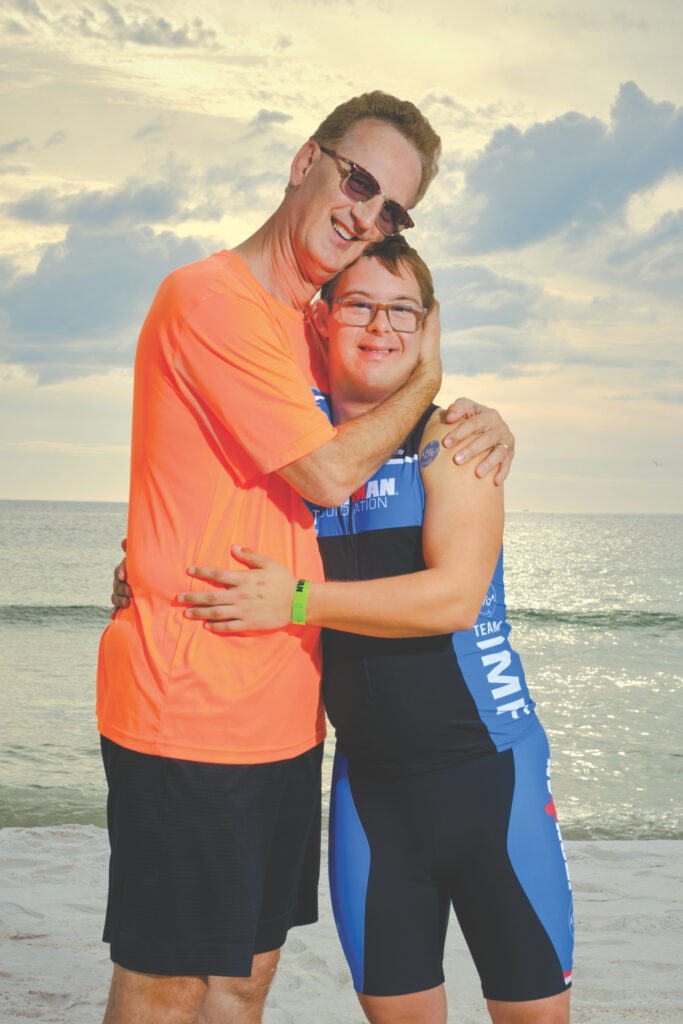
Nik Nikic ’84 learned early to see beyond life’s apparent limitations. His parents, who were subsistence farmers in rural Montenegro, moved their family to the Bronx when he was 10. His mother worked nights as a housekeeper, and his father worked days doing maintenance, in pursuit of a brighter future for Nikic and his two younger brothers. He vividly remembers his mother predicting, when he was only 6, that he would study hard and have great success as an engineer. “They taught us to work hard, and they taught us to dream,” he says.
After earning his degree in electrical engineering, Nikic applied those lessons to a rewarding career in technical sales and the creation of his own consulting firm. But perhaps their most spectacular application has been his work with his son, Chris, who last Nov. 7 became the first person with Down syndrome to finish an Ironman triathlon.
As far as anyone knows, Chris is the first person with Down syndrome even to attempt the grueling event, a 2.4-mile open-water swim, 112-mile bike ride, and 26.2-mile run, all done with no breaks in fewer than 17 hours. But after years of listening to expert advice and watching his son struggle to find his place in the world, Nikic had an epiphany: What if the experts were wrong about the things they said Chris couldn’t do, like balance himself on a bicycle? Or live on his own?
At 21, Chris Nikic has his own dream—to live independently, with a house and a car and a wife as beautiful and loving as his mother, Patty. What if he could gain the confidence to begin down that road to independence by doing something no one else with Down syndrome had ever done before?
About two years ago, Chris began his training with a single pushup. Because Nik is professionally interested in metrics, he started measuring his son’s progress and noticed he was improving, just very slowly. So, their mantra became 1% improvement every day. And Nik learned something new—that Chris’ learning curve is simply different, but in the long run, it’s as effective as anyone’s.
Despite crashing his bike, being attacked by fire ants, and suffering tremendous physical pain, Chris Nikic finished the momentous event (qualifying for a Guinness World Record) and has since done countless interviews, learned to give speeches (memorizing one sentence a day), and become an inspiration to his peers.
“He has so much more confidence, his memory is better, he learns more quickly,” Nik says. “I see him redefining what it means to have Down syndrome.”




